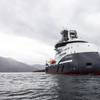Deepwater Horizon Lingers
It has been more than 16 months since the Deepwater Horizon incident on April 20, 2010 which resulted in the deaths of 11 and injuries to 17 men working on the platform and the discharge of approximately five million barrels of oil. The well was finally capped on July 15, 2010 yet the Joint Coast Guard and Bureau of Ocean Energy Management Regulation and Enforcement (BOEMRE) Investigation final report (Joint Investigation) has not been completed and released to the public. In addition, Congress continues to wait until the final results are released to make its own assessment of what legislation should ultimately be enacted and the complex litigation will be with us for years.
Investigations & Legislation
The Presidential National Commission (National Commission) was established on May 21, 2010 and its final 380-page report was released as scheduled on January 11, 2011 finding “systemic” problems across the industry, condemning industry in its failure to prepare adequate plans to respond to a major incident, and pointing the finger at the Administration for grossly inadequate federal oversight. As discussed below, however, Congress has not taken any action as a result of this report pending the release of the Joint Investigation report. When that occurs, there will be much interest from federal agencies, the public, and Congress to compare the National Commission final report and the Joint Investigation before determining future agency actions and legislation.
Regrettably, however, there has been an extended delay and ensuing confusion related to the Joint Investigation. Although the convening order for the Joint Investigation mandated the issuance of a single report, the Coast Guard chose to publish a “preliminary” report on April 22, 2011 close to the one-year anniversary of the casualty addressing issues under its jurisdiction. The problem with this report was that it was not “final agency action” by the Commandant. Indeed, it is highly unusual for the Coast Guard to release such a report to the public before finalization by the Commandant.
Furthermore, the Joint Investigation final results, both from BOEMRE and the Coast Guard, were scheduled to be published on July 27, 2011, however, the Joint Investigation report remains pending as of the date of the writing of this article. After a few days of silence following the missed deadline, the agencies noted on the Joint Investigation website that the agencies were working diligently to complete the report and in order to ensure that all evidence is properly weighed and considered, it was taking additional time to finalize the report. In the meantime, the Republic of the Marshall Islands, the flag state of the Deepwater Horizon, released its findings just before the Labor Day holiday.
While the release of the National Commission’s report earlier this year rekindled interest in Congress, it is now clear that Congress intends to wait until the release of the Joint Investigation report before seriously considering legislative action. In reality, the National Commission was under a tight deadline and its final report failed to address a number of key matters including why workers on the rig made the decisions they made before the explosion and why the blow out preventer (BOP) failed because tests are not yet completed. It is noteworthy in this regard, that Congressman LoBiondo and Congressman Mica recently co-sponsored and introduced the Coast Guard and Maritime Transportation Act of 2011 (the bill typically used for enactment of maritime legislation) on September 2, 2011 and there is no Deepwater Horizon spill legislation included in this bill. This is indicative that Congress is waiting for the release of the Joint Investigation report before introducing a consolidated spill bill this year.
In addition, although no longer in the news, it must be kept in mind that the Department of Justice (DOJ) criminal investigation continues. DOJ will review the Joint Investigation report and likely move forward with its grand jury investigation as it will be able to review the findings in the draft report to confirm that its prosecution theories will not conflict with the investigative findings. DOJ should start issuing subpoenas to individuals sometime after they review the report and then move forward with criminal charges against the companies it decides to target sometime in the third or fourth quarters of 2011.
However, it should be kept in mind, that much of the troublesome Deepwater Horizon spill legislation that was under consideration last year, including H.R. 3534, the Consolidated Land, Energy, and Aquatic Resources Act of 2009 (CLEAR Act), which the House passed last year, was reintroduced early this year. Of specific note, with regard to the Clear Act and the National Commission Report, Ed Markey, the Democratic Congressman from Massachusetts, introduced H.R. 501 on January 26, 2011 (Implementing the Recommendations of the BP Oil Spill Commission Act of 2011). H.R. 501 includes the troublesome provisions of the CLEAR Act.
Litigation
With regard to litigation, the spill spawned hundreds of lawsuits. Following the filing of hundreds of lawsuits, it was decided to consolidate all of the complaints under a special federal legal procedure designed to speed the process of handling complex cases such as air disaster litigation or complex product liability suits known as multi-district litigation (MDL). The purpose of using the MDL procedure is to efficiently process cases that could involve an extremely large number of plaintiffs in many different federal courts which all share common issues. The Deepwater Horizon litigation was consolidated in the Eastern District Court of Louisiana before Judge Barbier. However, the reality is that there are many different defendants with different interests that will prolong this case for years.
A part of this litigation involves action by DOJ to collect civil penalties. DOJ can seek penalties of $40,000 per day or $1,100 per barrel of oil discharged for negligence. However, if gross negligence is found BP is subject to a civil penalty that can be awarded by the court up to $4,300 per barrel of oil. Information has been released on two reports funded by the Administration which indicate that between 4.9 and 5 million barrels of oil were spilled. Based on the 4.9 million amount, the maximum penalty could be $5.4 billion and if there is a determination of gross negligence the fine could be $21 billion.
Conclusion
Congress will indeed revisit Deepwater Horizon issues this year and next year during the 112th Congress. While all legislation pending when the 111th Congress adjourned has expired, much of it has been reintroduced already in the early days of this new Congress.
In the shadow of the budgetary, economic, and war issues that have dominated the attention of Congress in the early days of this session, hearings have been held and numerous bills introduced to address oil spill liability, preparedness, and response in the aftermath of the Deepwater Horizon incident. The key issues will most likely continue to be changes in liability and the possibility of enacting the so-called “Americanization” and Jones Act provisions that will affect all offshore activities and operations. Of course, other changes could be advanced and a watchful eye is needed to avoid undue regulatory burdens and unintended consequences.
The reports by the National Commission, the Joint Investigation team, and the Republic of the Marshall Islands will most certainly be considered in advancing any legislation. Urgent calls for Congress to act, such as heard recently at the Pacific States/British Columbia Oil Spill Task Force annual meeting, continue from many different segments, including states, environmental interests, industry groups, and individual members of Congress. In conclusion, we do not expect Congressional interest to diminish, however, it is difficult to predict exactly when Congress will actually act on spill legislation given the other Congressional priorities it faces as it returns from the summer recess.
(As published in the October 2011 edition of Maritime Reporter + Engineering News - www.marinelink.com)












